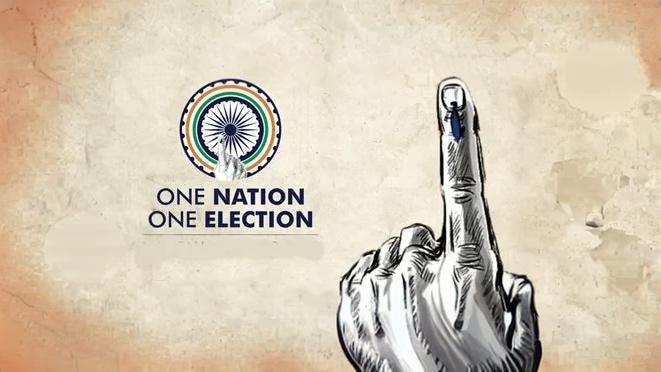In the dynamic landscape of Indian politics, the concept of "One Nation One Election" has emerged as a topic of intense debate and discussion. This proposed electoral reform envisions synchronizing the Lok Sabha and state assembly elections to be held simultaneously across the nation. While the idea has garnered both support and criticism, its potential implications on the democratic fabric of the country cannot be ignored.
Historical Context:
India, since gaining independence, has followed a staggered election cycle, with different states going to polls at different times. This has led to a perpetual election mode, with political parties perpetually engaged in electoral activities. The proposal for "One Nation One Election" aims to streamline this process, fostering a more efficient and cohesive electoral system.
Advantages:
-
Reduced Expenditure: Conducting elections is a costly affair. By aligning national and state elections, the frequency of polls would decrease, leading to a significant reduction in the overall expenditure. This could free up resources that could be redirected towards developmental projects, alleviating the economic burden on the nation.
-
Governance Continuity: Simultaneous elections would ensure a stable and continuous government at both the state and central levels. This could contribute to better policy implementation and governance, as elected officials would have a more extended period to focus on developmental initiatives rather than preparing for the next electoral battle.
-
Enhanced Voter Turnout: A single election event might lead to higher voter turnout as citizens would be more engaged in a consolidated election process. This could result in a more accurate reflection of the public's will, as more citizens participate in the democratic process.
-
Reduced Model Code of Conduct Impact: The Model Code of Conduct (MCC) is enforced by the Election Commission during elections, restricting the government from announcing policy decisions. With a single election, the impact of the MCC would be limited to a shorter duration, allowing for more consistent policy implementation.
Challenges and Concerns:
-
Logistical Challenges: Coordinating simultaneous elections across a vast and diverse nation like India poses significant logistical challenges. Ensuring the availability of security forces, election officials, and resources simultaneously across the country is a complex task.
-
Constitutional Amendments: Implementing "One Nation One Election" requires substantial changes to the Constitution. Amendments would be needed to synchronize the terms of state assemblies with the Lok Sabha, necessitating a careful and thorough legal review.
-
Political Opposition: Critics argue that the proposal could undermine the federal structure by centralizing political power. Smaller regional parties express concerns that simultaneous elections might overshadow state issues, focusing the narrative primarily on national politics.
-
Voter Education: Educating voters about multiple elections happening simultaneously might be challenging. Citizens need to be well-informed about the candidates and issues at both the state and national levels to make informed choices.
Conclusion:
The idea of "One Nation One Election" has the potential to bring about significant changes in the Indian electoral landscape. While the advantages of cost reduction, governance continuity, and enhanced voter turnout are compelling, addressing the challenges of logistical complexities, constitutional amendments, and political opposition is crucial. Striking a balance between a unified electoral process and the diversity of Indian states is key to realizing the full potential of this reform. As the nation deliberates on this issue, it is essential to ensure that any electoral reform preserves the essence of India's vibrant democracy.


No comments yet